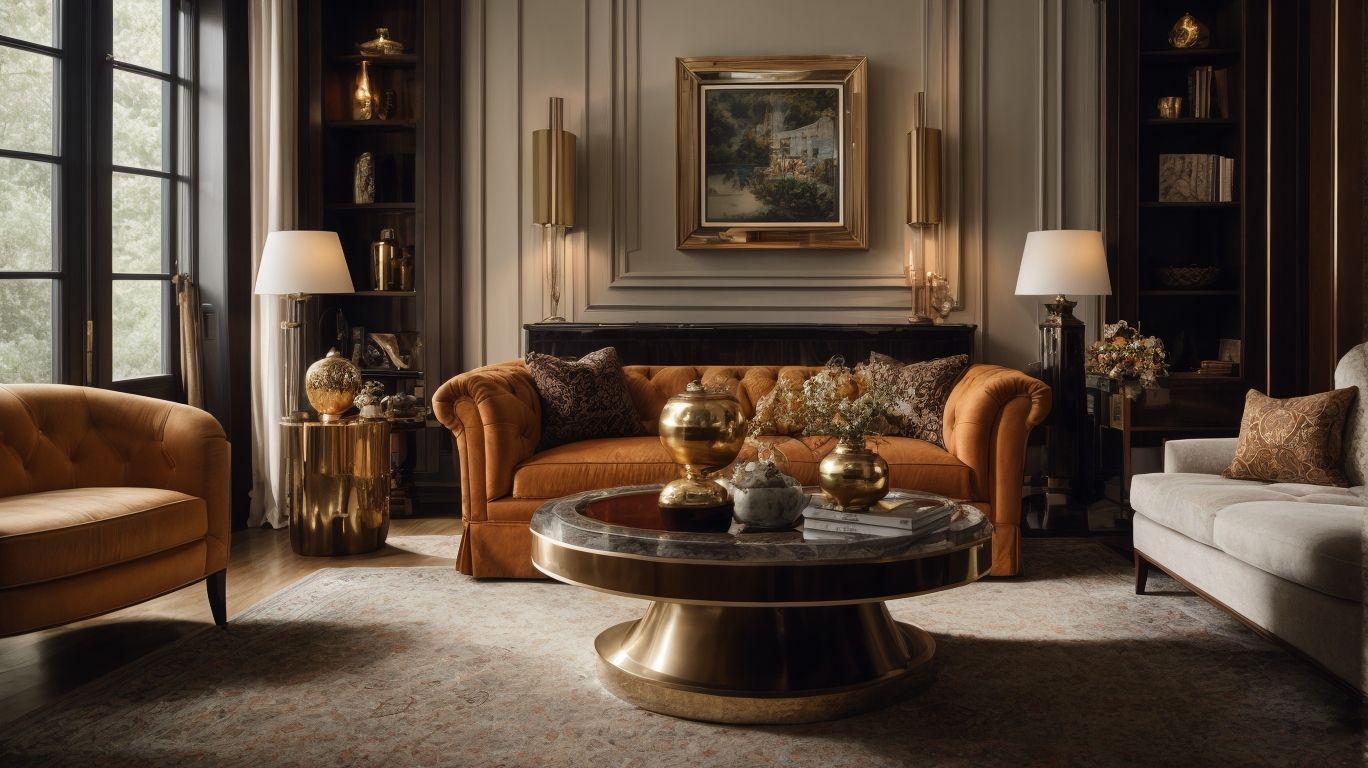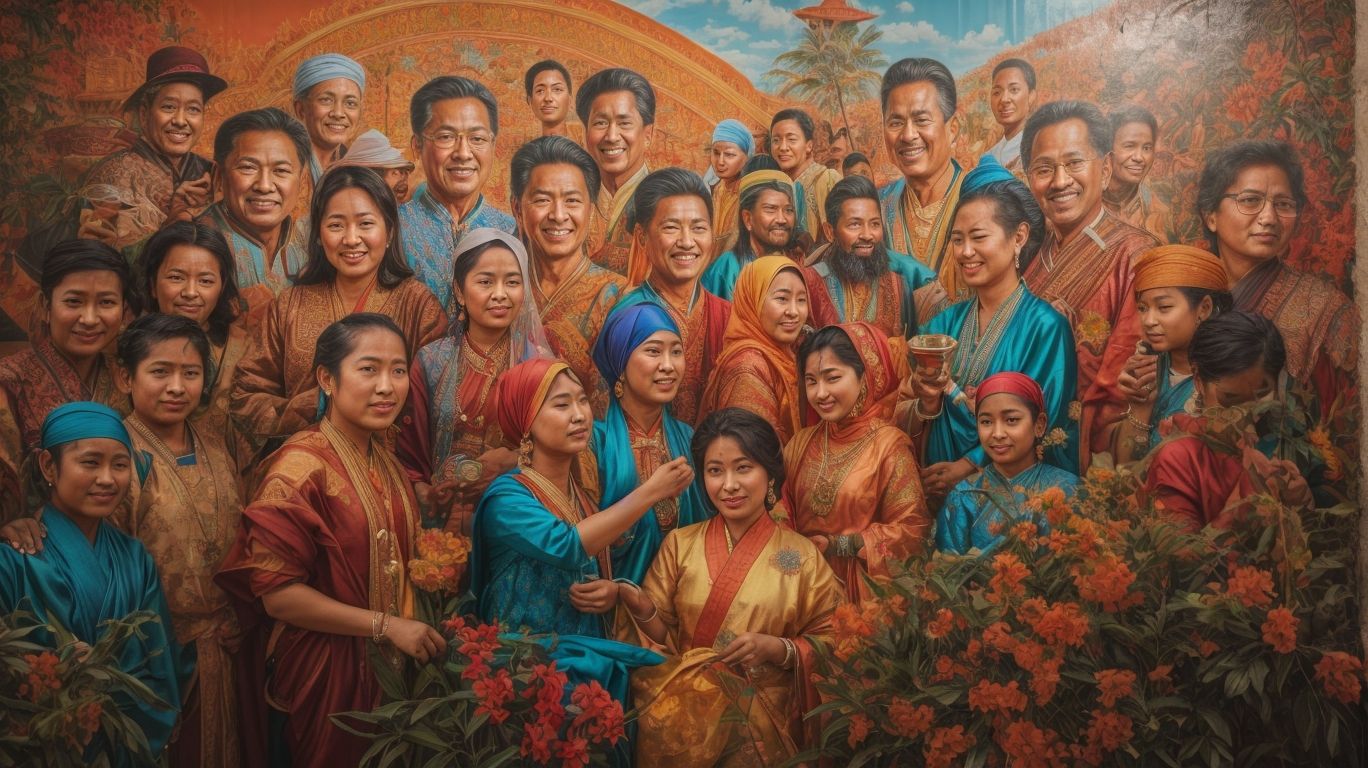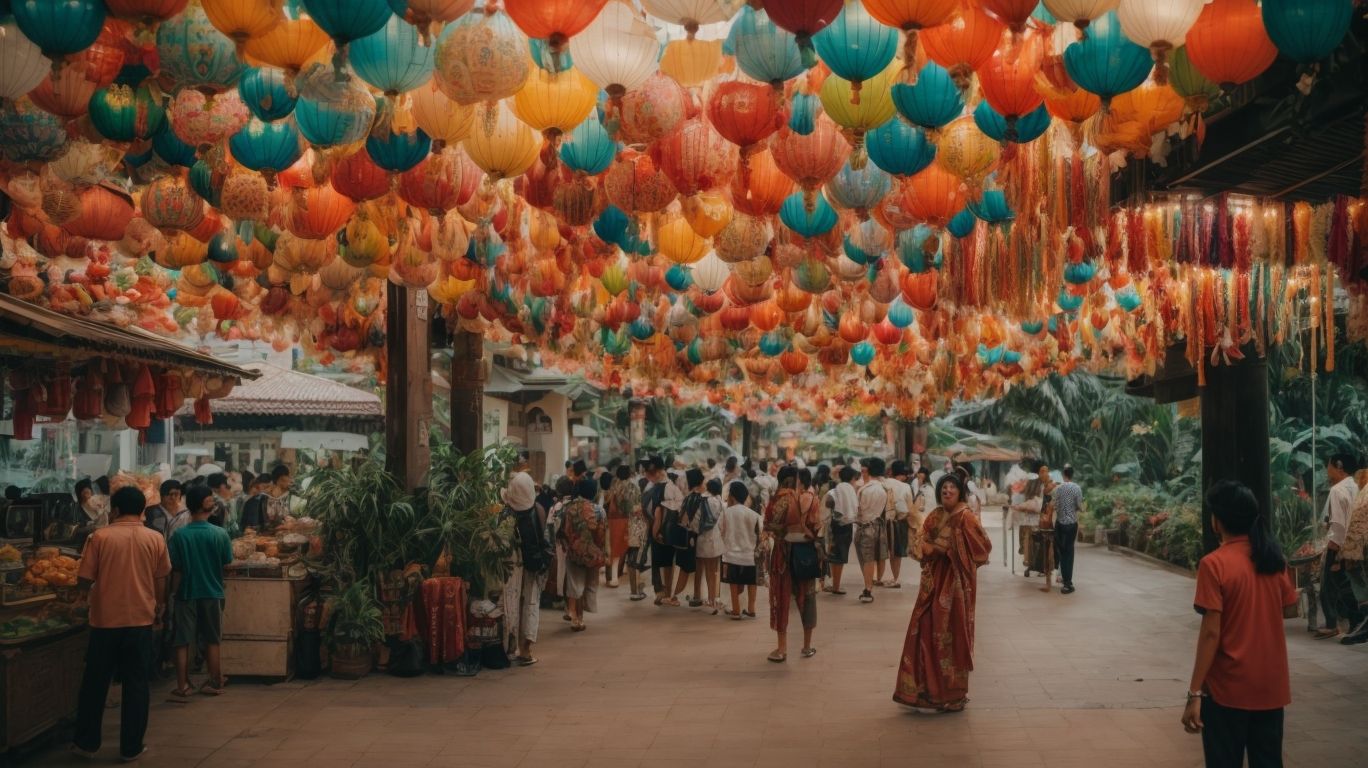
Welcome to the world of culture and luxury living. As we enter a new era of globalization, the intersection of culture and luxury has become an important topic to explore. Are you looking to enhance your lifestyle with a touch of culture, but don’t know where to start? Let us guide you on this journey.
What Is Culture?
Culture is the shared beliefs, values, customs, and behaviors of a specific group or society. It encompasses various aspects, including language, religion, art, and traditions. Our culture shapes our identities and impacts how we view and engage with the world. It also provides a structure for social norms and influences our actions and relationships.
Having an understanding of what culture is allows us to value the diversity and depth of human experiences and promotes a sense of unity and compassion. Our culture serves as a means of preserving our heritage, transmitting knowledge, and fostering a sense of belonging.
How Is Culture Defined?
Culture is a multifaceted concept that encompasses various elements of human society. When attempting to define culture, it is essential to consider the following factors:
- Shared values and beliefs: Culture is shaped by the shared values, beliefs, and norms that guide the behavior of a society.
- Language and communication: Language is a crucial aspect of culture as it allows individuals to express ideas, transmit knowledge, and maintain social cohesion.
- Social institutions: Culture is reflected in the social institutions that govern a society, including family structures, educational systems, and political organizations.
- Symbols and rituals: Cultural symbols, such as flags or religious icons, hold significance and represent shared values. Rituals and ceremonies are important cultural practices that reinforce social bonds.
- Art and creativity: Culture is also expressed through various forms of art, such as music, literature, visual arts, and performing arts.
Understanding how culture is defined is crucial in appreciating its significance in shaping individual and collective identities, and promoting social cohesion. It also allows for the recognition of the diverse ways in which cultures influence societies around the world. Embracing cultural diversity and promoting intercultural dialogue are essential for creating a more inclusive and harmonious global community.
What Are the Different Types of Culture?
Culture is a multifaceted concept with a variety of types that play a role in shaping societies. There are numerous distinct types of culture, each with its own defining characteristics and impacts. Some of the most common types include:
- Material culture: This refers to the physical objects and artifacts created by a society, such as tools, clothing, and architecture.
- Symbolic culture: This encompasses the beliefs, values, and norms that guide social behavior, including language, rituals, and customs.
- Pop culture: This refers to the mainstream entertainment, fashion, and trends that capture the attention of a large portion of society.
- Subculture: These are smaller groups within a society that have their own unique values, practices, and identities, such as countercultures or religious subcultures.
- National culture: This is the culture shared by people within a specific country, including traditions, history, and social norms.
Having an understanding of the various types of culture is crucial for comprehending the diverse ways in which societies operate and individuals identify themselves within them.
What Is Luxury Living?
What Is Luxury Living? Luxury living is defined as an extravagant and exclusive lifestyle that offers high-quality and premium experiences. It goes beyond material possessions and encompasses elements such as comfort, aesthetics, and personalized services. This lavish lifestyle includes residing in luxurious homes or apartments, enjoying amenities like private pools, fitness centers, and spas, and indulging in fine dining, high-end fashion, and luxury travel experiences. It is all about creating a sense of opulence, sophistication, and indulgence. Luxury living is often associated with affluent individuals who have the means to elevate their quality of life and surround themselves with the best that money can buy.
What Are the Characteristics of Luxury Living?
Luxury living is defined by its opulence, exclusivity, and exceptional quality. It encompasses various aspects, including the environment, amenities, and services. Some key characteristics of luxury living include:
- The use of high-end materials and finishes, such as marble, gold accents, and custom-made furniture.
- Incorporation of state-of-the-art technology and smart home features for convenience and comfort.
- Impeccable craftsmanship and attention to detail in every aspect of design and architecture.
- Access to premium amenities such as spas, fitness centers, private pools, and concierge services.
- Privacy and security through gated communities, surveillance systems, and discreet staff.
- Exceptional customer service and personalized experiences tailored to individual needs.
- Exclusivity and prestige associated with living in sought-after locations or iconic buildings.
- Integration of sustainable and eco-friendly features that showcase a commitment to the environment.
Overall, luxury living offers a heightened lifestyle experience with unparalleled comfort and sophistication.
How Do Culture and Luxury Living Intersect?
Culture and luxury living intersect in numerous ways, demonstrating the significant influence of cultural values on luxury lifestyles. Here are some steps to better understand how culture and luxury living intertwine:
- Exploration of Cultural Heritage: Incorporating cultural elements into luxury spaces and experiences, such as traditional architecture, art, and design.
- Celebration of Local Cuisine: Luxury living embraces the gastronomic traditions of a culture, showcasing authentic flavors and local ingredients.
- Showcasing Art and Fashion: Luxury brands collaborate with local artists and designers, combining cultural aesthetics with luxury products.
- Social Responsibility: Luxury living integrates community engagement and sustainability, respecting local cultures and supporting cultural preservation initiatives.
- Cultural Experiential Travel: Luxury travelers seek immersive experiences, such as cultural festivals, traditional ceremonies, and indigenous encounters.
How Does Culture Influence Luxury Living?
Culture plays a significant role in luxury living, shaping various aspects of lifestyle and consumer behavior. Here are some ways in which culture influences luxury living:
- 1. Aesthetics: Cultural values and preferences greatly influence the design and aesthetics of luxury goods, including home decor, fashion, and accessories.
- 2. Symbolism: Luxury products often incorporate cultural symbols and references that resonate with specific cultures, appealing to consumers seeking cultural identity and status.
- 3. Rituals and Traditions: Luxury experiences and services often include cultural rituals and traditions, providing a sense of authenticity and cultural immersion.
- 4. Exclusivity: Culturally influenced notions of exclusivity and scarcity play a significant role in luxury branding, creating desirability and status among consumers.
Considering cultural influences when engaging in luxury living allows individuals to connect with their heritage and personal values while indulging in the finer things in life.
How Does Luxury Living Affect Culture?
Luxury living has a significant impact on culture, shaping societal norms and values in various ways. Here are some examples of how luxury living affects culture:
- Aspiration: The high standards set by luxury living can create aspirations among individuals, leading to a shift in cultural values towards materialism and status.
- Economic Divide: Luxury living perpetuates a wealth gap in society, resulting in social inequality and class divisions.
- Consumerism: The emphasis on luxury goods and experiences promotes a culture of consumption, where material possessions are prioritized over other aspects of life.
- Innovation and Creativity: Luxury living encourages innovation in design, fashion, and technology, shaping cultural trends and influencing artistic expressions.
- Environmental Impact: The pursuit of luxury often involves unsustainable practices, such as excessive resource consumption and waste, which can have adverse effects on the environment.
These are just a few examples of the ways in which luxury living can impact culture, highlighting the complex relationship between material wealth and societal values.
Examples of Cultural Influences in Luxury Living
Luxury living is not just about opulence and extravagance; it also incorporates various cultural influences that add depth and meaning to our everyday experiences. In this section, we will explore the examples of cultural influences in luxury living, from traditional elements in home design to cultural themes in fashion and accessories. We will also delve into how culture plays a role in luxury travel and tourism, showcasing the intersection of cultural appreciation and luxurious living.
1. Traditional Cultural Elements in Luxury Home Design
Traditional cultural elements play a significant role in luxury home design. By incorporating these elements, you can add a unique and sophisticated touch to your living space. Here are some steps to consider when integrating traditional cultural elements into luxury home design:
- Research: Explore different cultural traditions and design elements that resonate with you.
- Incorporate Materials: Use traditional materials, such as wood, stone, or ceramics, that are prominent in the culture that inspires you.
- Colors and Patterns: Choose colors and patterns that reflect the cultural aesthetic, such as rich earth tones or intricate geometric designs.
- Furniture and Decor: Select furniture and decor pieces that showcase the craftsmanship and style of the culture, such as intricately carved wood furniture or handwoven textiles.
- Art and Artifacts: Display traditional art pieces or artifacts that represent the culture’s history and heritage.
- Architecture and Layout: Incorporate architectural features or layout designs that are reminiscent of the culture, such as courtyards or traditional roof styles.
- Lighting: Use lighting fixtures that highlight the cultural elements in your home, such as lanterns or chandeliers with specific cultural motifs.
2. Cultural Themes in Luxury Fashion and Accessories
Cultural themes are a crucial aspect of luxury fashion and accessories, influencing designs, aesthetics, and trends. These themes encompass traditional garments, motifs, symbols, and craftsmanship from various cultures worldwide. By incorporating cultural elements, luxury brands can offer unique and exclusive products that appeal to discerning consumers. For instance, luxury brands may collaborate with indigenous artisans to create one-of-a-kind pieces that celebrate their heritage.
Not only do cultural themes enhance the overall appeal of luxury fashion and accessories, but they also play a role in preserving and appreciating diverse cultural traditions.
3. Cultural Influences in Luxury Travel and Tourism
Cultural influences play a significant role in shaping the luxury travel and tourism industry. Here are some steps to understand and incorporate these influences:
- Research: Study the cultural heritage and traditions of the destination you plan to visit.
- Local Experiences: Seek out authentic cultural experiences, such as dining at local restaurants or attending traditional festivals.
- Art and Architecture: Explore museums, galleries, and historical sites that showcase the local art and architectural styles.
- Customized Tours: Opt for guided tours that provide insights into the cultural significance of landmarks and attractions.
- Responsible Tourism: Respect local customs, traditions, and environmental practices to ensure a sustainable and culturally sensitive experience.
By embracing cultural influences, luxury travelers can create meaningful connections and contribute to the preservation of cultural heritage.
The Future of Culture and Luxury Living
The future of culture and luxury living holds exciting developments in various aspects.
- Architecture: Expect innovative designs that seamlessly incorporate cultural elements, such as traditional motifs or locally-sourced materials.
- Technology: Advanced smart home systems will enhance convenience and luxury, while virtual reality experiences will provide immersive cultural encounters.
- Sustainability: Eco-friendly practices will be integral to luxury living, with the use of sustainable materials and energy-efficient technologies.
- Experiences: Luxury living will prioritize curated experiences, offering access to exclusive cultural events, private art collections, and personalized luxury travel.
- Personalization: Customization will be key, with luxury residences tailored to individual preferences and interests in culture.
Suggestions: Embrace the future of culture and luxury living by seeking out architects and designers who specialize in blending cultural elements with modern luxury. Embrace sustainable practices by choosing eco-friendly materials and supporting brands with a commitment to environmental responsibility. Seek out unique cultural experiences, whether through art, music, or travel, to enrich your luxury living journey.
How Will Culture Continue to Shape Luxury Living?
Culture will continue to shape luxury living in a variety of ways:
- Influence on Design: Cultural elements will inspire unique architectural styles and traditional motifs in luxury home design.
- Impact on Fashion: Cultural themes will continue to influence luxury fashion and accessories, incorporating traditional patterns, textiles, and craftsmanship.
- Influence on Travel: Cultural influences will shape luxury travel experiences, with a focus on immersive cultural experiences and the preservation of heritage sites.
- Emphasis on Sustainability: Cultural values will drive the luxury industry towards sustainable practices, promoting ethical sourcing and supporting local artisans.
- Integration of Technology: As culture evolves, luxury living will embrace technological advancements, incorporating innovations in smart homes, digital experiences, and virtual reality.
Throughout history, culture has always played a significant role in shaping luxury living. From the opulent palaces of ancient empires to the ornate fashion of the Renaissance, cultural influences have continually transformed the concept of luxury. As cultures continue to evolve and intertwine, we can expect that the future of luxury living will be an amalgamation of diverse cultural expressions, presenting new and exciting possibilities for those seeking the epitome of refinement and indulgence.
What Changes Can Be Expected in the Intersection of Culture and Luxury Living?
In the intersection of culture and luxury living, we can anticipate several changes in the future. These changes will be influenced by shifting cultural values and trends in the luxury industry. Some possible changes include:
- Sustainable Luxury: With environmental concerns becoming more prominent, luxury brands are likely to prioritize sustainability in their products and practices, incorporating eco-friendly materials and production methods.
- Cultural Diversity: Luxury brands will increasingly celebrate and incorporate diverse cultural influences, embracing different traditions, designs, and aesthetics to cater to a global market.
- Digital Innovation: Technology will continue to play a significant role in luxury living, with advancements in virtual reality, augmented reality, and artificial intelligence offering immersive and personalized luxury experiences.
- Social Responsibility: Consumers will expect luxury brands to demonstrate social responsibility by addressing social issues and supporting philanthropic causes, reflecting the values of socially conscious individuals.
- Customization and Personalization: Luxury brands will focus on providing personalized and unique experiences, allowing consumers to tailor their luxury products and services to their individual tastes and preferences.
These changes will shape the future of culture and luxury living, ensuring that the luxury industry remains dynamic and responsive to evolving cultural trends and consumer expectations.






